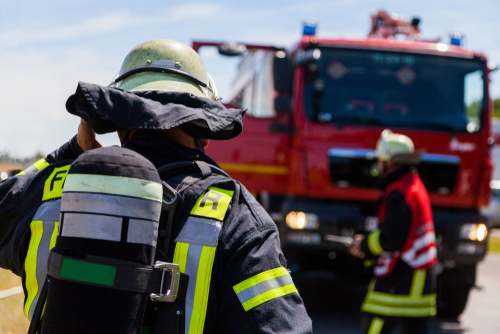
Next month will mark the 17th anniversary of the attack on the World Trade Center, which changed the history of America and the lives of Americans forever. Perhaps millions of people both close to and distant party to the attacks which took place that day were deeply affected by the events. From first responders to survivors, families of victims to citizens of New York, government officials to viewers watching at home, the events of that day is burned into the lives of many.
Trauma on the scale of the 9/11 attacks significantly change a person’s life mentally, physically, and spiritually. Conversations about PTSD and trauma were practically immediate as thousands of first responders like New York Fire Fighters started struggling with their mental health. New research suggests that first responders who valiantly served their positions in the aftermath of 9/11 and developed PTSD, post-traumatic stress disorder, may be at twice the risk of heart attack and stroke than first responders who served but didn’t develop PTSD.
Though thousands of people experienced the trauma of 9/11, their manifestations of trauma will differ. Trauma will happen to most people within their lifetime on varying levels of severity. Nearly all people will experience at least one symptom of manifestation of trauma. A small percentage will experience severe symptoms which may include the development of Post-traumatic stress disorder.
Published in Circulation: Cardiovascular Quality and Outcomes, the study found that about a fifth of responders developed PTSD. Researchers tracked the health of more than 6,000 blue collar first responders over a period of four years, according to WebMD. Blood pressure, weight, height, and cholesterol were all measured and taken into consideration as was “self-reported information PTSD, depression, smoking and dust exposure during the clean-up” the website cites. Taking out other health factors which might contribute to heart issues, researcher found a 2.2-fold higher risk of heart attack in the first responders who had developed PTSD compared to those who did not develop PTSD. For stroke, the risk was 2.5 times higher.
The study doesn’t prove causation, meaning it cannot deliberately state that PTSD is the cause of heart attack and/or stroke in these first responders. What the study does is suggest a link which provides more evidence of the physical effects severe trauma can have on health.
At The Guest House Ocala, we welcome everyone who has experienced trauma and, as a result, is suffering from addictions, mental health disorders, or other manifestations. Our programs are custom tailored to the specific experiences and needs of each client. Everyone has a story. Change yours today. Call us at Call 1-855-483-7800.